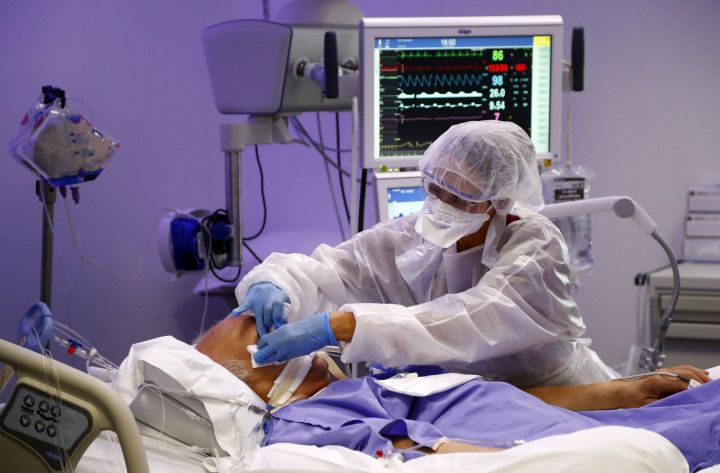A new piece of medical equipment created at the University of Alberta may help doctors find a quicker and safer way to resuscitate patients who go into cardiac arrest due to COVID-19.

The novel coronavirus can create complications in the lungs, and many patients are placed on their bellies to improve ventilation.
READ MORE: Strokes, ‘lumpy’ lungs: what doctors know about unusual ways coronavirus attacks your body
Watch below: (From April 2020): The coronavirus pandemic continues to spread across Canada, infecting people young and old — and, in severe cases, it can leave a lasting mark on a patient’s lungs.

Matthew Douma, an assistant adjunct professor of critical care medicine at the U of A, says if patients go into cardiac arrest, doctors have to turn them onto their backs to perform cardiopulmonary resuscitation, or CPR.
Turning patients can cause delay and put doctors at risk because they have closer contact with infected patients.

Get weekly health news
Douma says he’s part of a group that has created a new CPR board that can be placed under patients while they are prone, with a piece that adds pressure to the chest area while medical staff do compressions on their backs.
The U of A says 10,000 people have already downloaded the design for the board and five hospitals in Brazil are using it.




Comments
Want to discuss? Please read our Commenting Policy first.